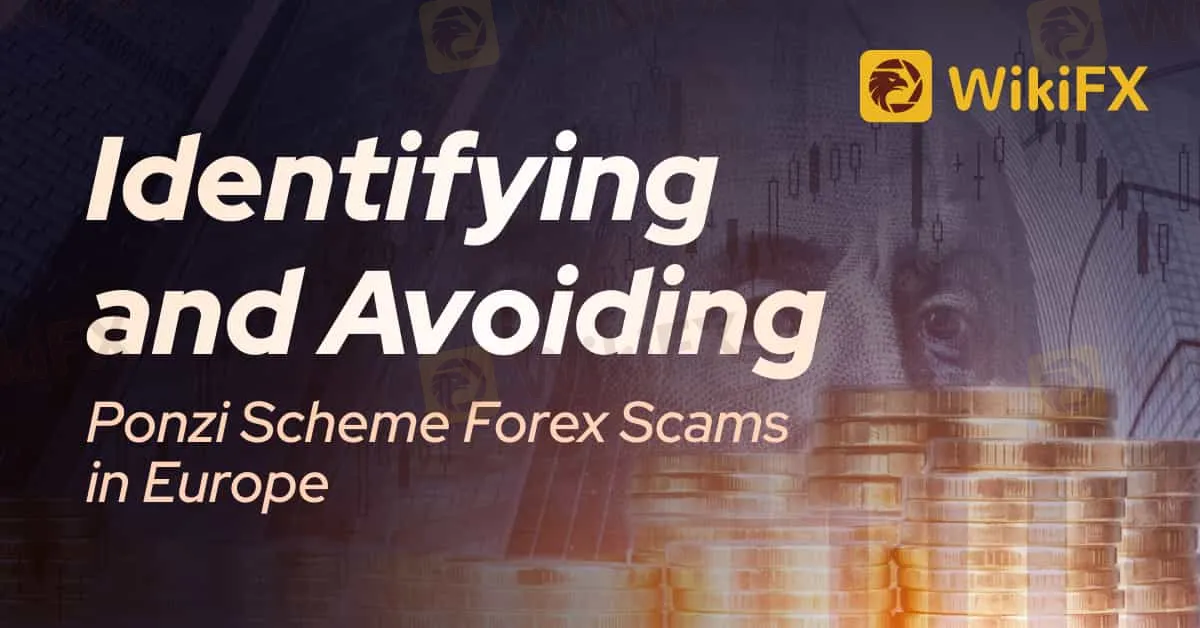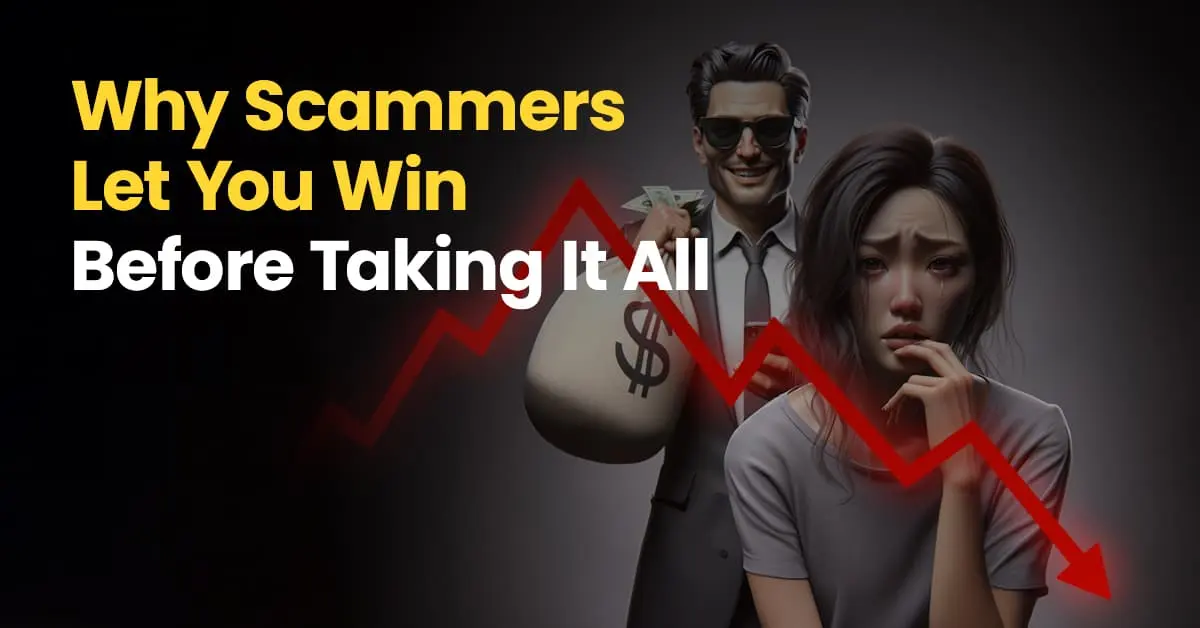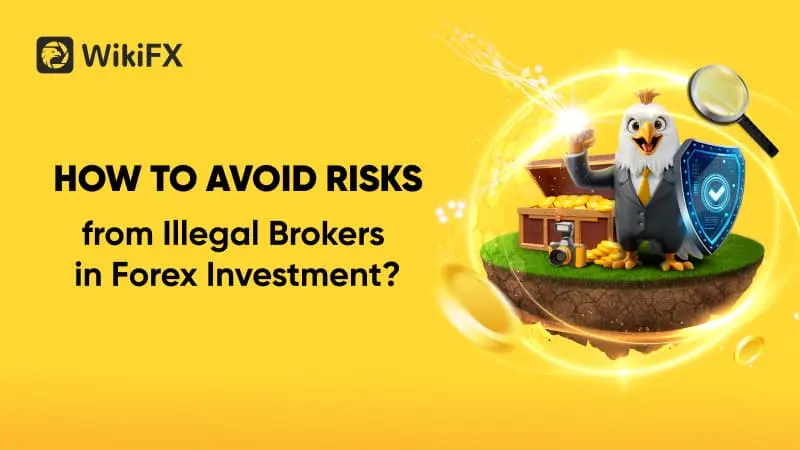简体中文
繁體中文
English
Pусский
日本語
ภาษาไทย
Tiếng Việt
Bahasa Indonesia
Español
हिन्दी
Filippiiniläinen
Français
Deutsch
Português
Türkçe
한국어
العربية
Identifying and Avoiding Ponzi Scheme Forex Scams in Europe
Abstract:Ponzi schemes have been a persistent problem in the financial industry, and forex markets are not exempt from their reach. These scams promise unrealistically high returns, often through forex trading, but instead rely on new investors' funds to pay off older investors. In this article, we will discuss how to identify and avoid Ponzi scheme forex scams in Europe.

Ponzi schemes have been a persistent problem in the financial industry, and forex markets are not exempt from their reach. These scams promise unrealistically high returns, often through forex trading, but instead rely on new investors' funds to pay off older investors. In this article, we will discuss how to identify and avoid Ponzi scheme forex scams in Europe.
Unrealistic Promises
Ponzi schemes lure victims with promises of extraordinary returns on investments. Be cautious of any scheme that guarantees high, consistent profits with little to no risk. Remember, if it sounds too good to be true, it probably is.
Lack of Transparency
Ponzi schemes often lack transparency when it comes to sharing information about their trading strategies or the specifics of their investments. Legitimate forex trading firms provide transparent information about their strategies and investments, while Ponzi schemes rely on secrecy and vague explanations.
Pressure to Recruit
Ponzi schemes typically encourage participants to recruit others to join the scheme. This is done to sustain the flow of new investments, as the funds from new recruits are used to pay off older investors. If a scheme emphasizes recruitment over actual trading, it's likely a Ponzi scheme.
Verified Track Record
Legitimate forex firms can provide verifiable records of their trading history, demonstrating consistent returns over time. In contrast, Ponzi schemes often fail to provide audited records or any evidence of their trading activities. Request proof of trading performance before investing.
Conclusion
Protecting yourself from Ponzi scheme forex scams in Europe requires vigilance and skepticism. Avoid schemes that promise unrealistic returns, lack transparency, or emphasize recruitment over trading. If you suspect a scheme may be a Ponzi scheme, report it to the appropriate authorities immediately. For more information on forex scams and reliable resources, visit WikiFX at www.wikifx.com. They offer valuable insights and tools to help traders make informed decisions and avoid falling victim to fraudulent schemes.

Disclaimer:
The views in this article only represent the author's personal views, and do not constitute investment advice on this platform. This platform does not guarantee the accuracy, completeness and timeliness of the information in the article, and will not be liable for any loss caused by the use of or reliance on the information in the article.
Read more

Why Scammers Let You Win Before Taking It All
One of the most cunning tactics fraudsters employ is allowing victims to win at first. But why do scammers take this approach, and how does it work?

How to Avoid Risks from Scam Brokers in Forex Investment
In recent years, the forex market has become a popular choice for global investors due to its high liquidity and 24-hour trading advantages. However, according to the recently concluded WikiFX "3·15 Forex Rights Protection Day " event, we received over 6,000 pieces of evidence exposing rights violations within a short period. This reflects that, although the forex industry is becoming more regulated, fraudulent platforms continue to emerge, causing significant suffering for many victims.

California Cracks Down on Crypto Scams: 42 Websites Shut Down in $6.5M Bust
California Attorney General Rob Bonta announced earlier this week that the state had taken decisive action against fraudulent cryptocurrency operations. Authorities successfully shut down 42 scam websites responsible for deceiving investors out of at least $6.5 million.

FINRA Panel Orders Stifel to Pay $132.5M for Misleading Investors
FINRA arbitration panel rules Stifel must pay $132.5M for misrepresenting risks of structured notes, highlighting investor protection.
WikiFX Broker
Latest News
How to Avoid Risks from Scam Brokers in Forex Investment
Will Trump's Trade Policies Fuel Inflation? BlackRock Warns of Economic Risks
WikiFX "3·15 Forex Rights Protection Day" – Official Release of the Blacklist
Why Scammers Let You Win Before Taking It All
A Must-To-Watch Top Trading Pairs This 2025
Currency Calculator






